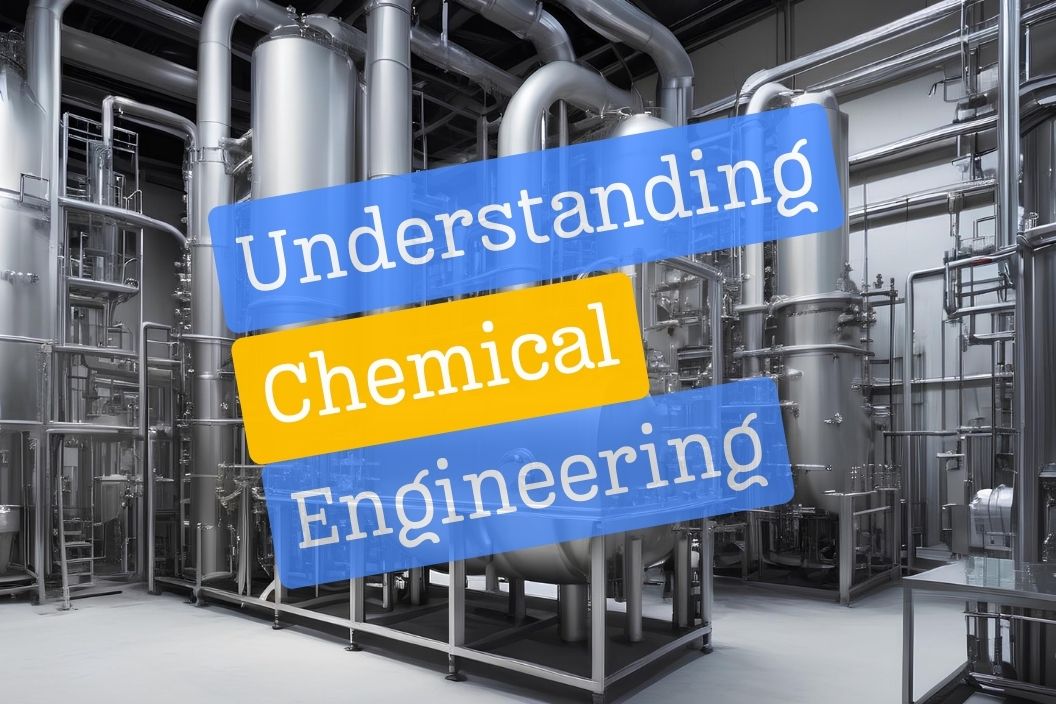Breaking Down the Basics: Understanding Chemical Process Engineering
Chemical process engineering is a critical field that combines principles of chemistry, physics, biology, and mathematics to design, analyze, and optimize processes for the production of chemicals, materials, and energy. This discipline is at the heart of numerous industries, including pharmaceuticals, petrochemicals, food and beverages, and renewable energy. By breaking down the basics of chemical process engineering, we can gain a better understanding of its fundamental concepts, its significance, and its impact on our daily lives.
What is Chemical Process Engineering?
At its core, chemical process engineering focuses on transforming raw materials into valuable products through chemical, physical, or biological transformations. This involves the development and application of chemical processes that are safe, efficient, economical, and environmentally friendly. Chemical process engineers work on various aspects of these processes, from conception and design to implementation and optimization.
Key Concepts in Chemical Process Engineering
1. Unit Operations
Unit operations are the fundamental building blocks of chemical processes. They refer to individual steps or stages within a process where a specific physical or chemical change occurs. Examples of unit operations include distillation, filtration, heat exchange, mixing, and chemical reactions. By understanding and optimizing each unit operation, chemical engineers can enhance the overall efficiency and effectiveness of a process.
2. Process Design
Process design is a crucial aspect of chemical process engineering. It involves creating a detailed plan for the production process, including the selection of equipment, determination of operating conditions, and arrangement of unit operations. Engineers use simulation software and mathematical models to predict the behavior of the process and make informed decisions to achieve desired outcomes.
3. Material and Energy Balances
Material and energy balances are essential tools in chemical process engineering. They involve tracking the flow of materials and energy through a process to ensure that inputs and outputs are accounted for. By performing these balances, engineers can identify inefficiencies, optimize resource usage, and minimize waste.
4. Reaction Engineering
Chemical reactions are the foundation of many industrial processes. Reaction engineering focuses on understanding and controlling chemical reactions to maximize product yield and selectivity. This involves studying reaction kinetics, thermodynamics, and reactor design to achieve optimal performance.
5. Thermodynamics and Transport Phenomena
Thermodynamics and transport phenomena play a critical role in chemical process engineering. Thermodynamics deals with the principles of energy transfer and conversion, while transport phenomena involve the study of momentum, heat, and mass transfer. These principles are essential for designing and optimizing processes involving heat exchangers, reactors, and separation units.
The Significance of Chemical Process Engineering
Chemical process engineering is vital for several reasons:
1. Economic Impact
Chemical processes produce a wide range of products that are essential to modern life, from fuels and pharmaceuticals to plastics and food additives. By optimizing these processes, chemical engineers contribute to the economic growth and sustainability of industries, ensuring that products are produced efficiently and cost-effectively.
2. Environmental Sustainability
Sustainability is a key focus in chemical process engineering. Engineers strive to develop processes that minimize environmental impact by reducing waste, conserving energy, and utilizing renewable resources. Innovations in green chemistry and sustainable engineering practices are crucial for addressing global challenges such as climate change and resource depletion.
3. Safety and Risk Management
Chemical processes can involve hazardous materials and conditions. Chemical process engineers prioritize safety by designing processes that minimize risks and implementing robust safety protocols. This ensures the well-being of workers, communities, and the environment.
4. Innovation and Advancement
Chemical process engineering drives technological advancements by developing new processes and improving existing ones. Innovations in areas such as nanotechnology, biotechnology, and renewable energy rely heavily on the expertise of chemical process engineers.
Real-World Applications
The principles of chemical process engineering are applied across a wide range of industries:
1. Pharmaceuticals
In the pharmaceutical industry, chemical process engineers develop processes for synthesizing and purifying drugs. This involves optimizing reaction conditions, scaling up production, and ensuring product quality and consistency.
2. Petrochemicals
Petrochemical plants rely on chemical process engineers to convert crude oil into valuable products such as fuels, plastics, and chemicals. This requires expertise in distillation, cracking, and other refining processes.
3. Food and Beverages
Chemical process engineering plays a role in the production of food and beverages by ensuring the safety, quality, and efficiency of processes such as fermentation, pasteurization, and packaging.
4. Renewable Energy
Engineers in the renewable energy sector work on processes for producing biofuels, hydrogen, and other sustainable energy sources. This includes developing efficient conversion technologies and optimizing resource utilization.
Conclusion
Chemical process engineering is a multifaceted discipline that underpins many aspects of modern life. By understanding the basics of unit operations, process design, material and energy balances, reaction engineering, and thermodynamics, we can appreciate the critical role that chemical process engineers play in creating safe, efficient, and sustainable processes. Their work not only drives economic growth and technological innovation but also addresses some of the most pressing environmental and societal challenges of our time.

